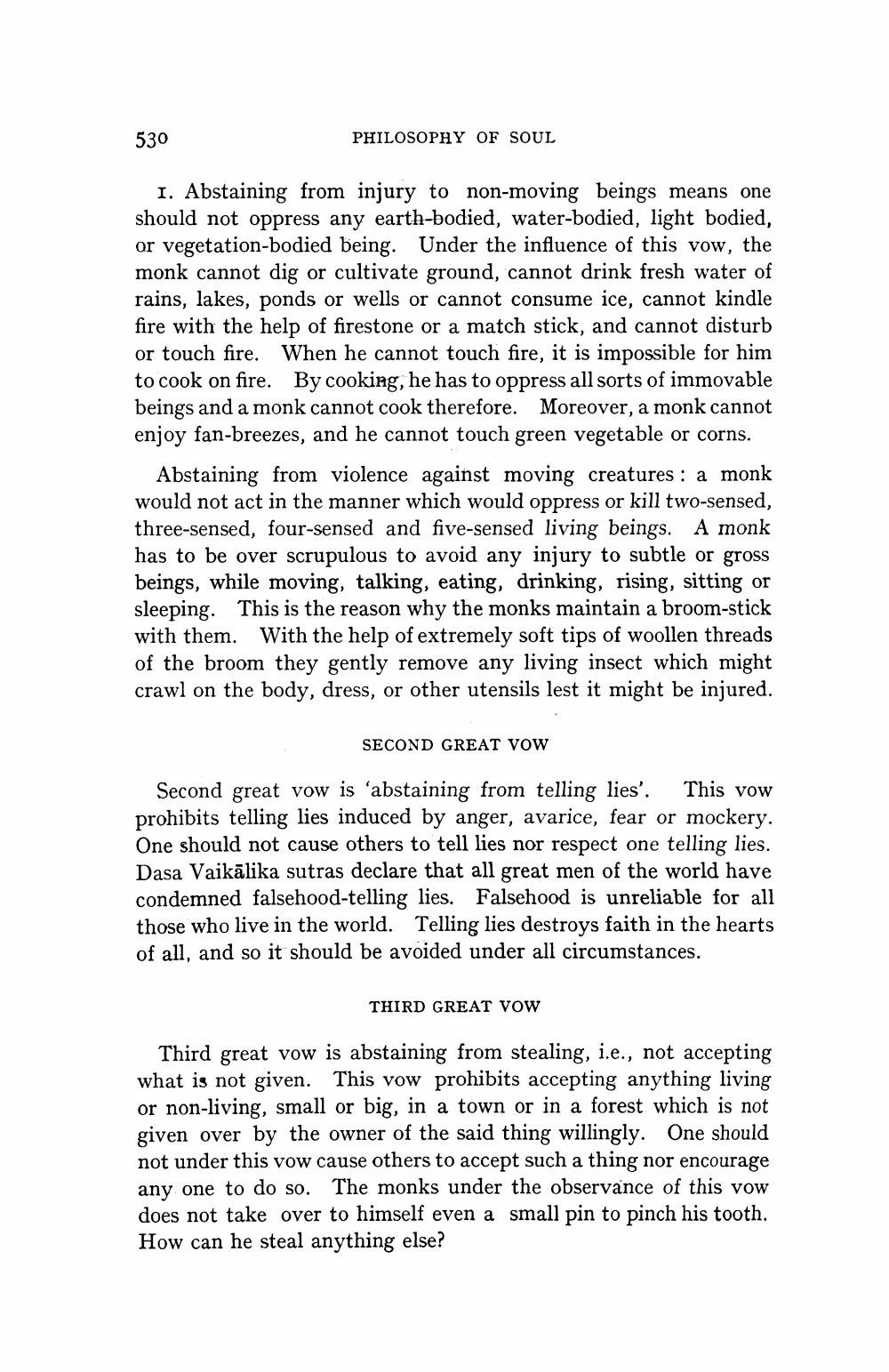________________
530
PHILOSOPHY OF SOUL
1. Abstaining from injury to non-moving beings means one should not oppress any earth-bodied, water-bodied, light bodied, or vegetation-bodied being. Under the influence of this vow, the monk cannot dig or cultivate ground, cannot drink fresh water of rains, lakes, ponds or wells or cannot consume ice, cannot kindle fire with the help of firestone or a match stick, and cannot disturb or touch fire. When he cannot touch fire, it is impossible for him to cook on fire. By cooking, he has to oppress all sorts of immovable beings and a monk cannot cook therefore. Moreover, a monk cannot enjoy fan-breezes, and he cannot touch green vegetable or corns.
Abstaining from violence against moving creatures: a monk would not act in the manner which would oppress or kill two-sensed, three-sensed, four-sensed and five-sensed living beings. A monk has to be over scrupulous to avoid any injury to subtle or gross beings, while moving, talking, eating, drinking, rising, sitting or sleeping. This is the reason why the monks maintain a broom-stick with them. With the help of extremely soft tips of woollen threads of the broom they gently remove any living insect which might crawl on the body, dress, or other utensils lest it might be injured.
SECOND GREAT VOW
Second great vow is 'abstaining from telling lies'. This vow prohibits telling lies induced by anger, avarice, fear or mockery. One should not cause others to tell lies nor respect one telling lies. Dasa Vaikālika sutras declare that all great men of the world have condemned falsehood-telling lies. Falsehood is unreliable for all those who live in the world. Telling lies destroys faith in the hearts of all, and so it should be avoided under all circumstances.
THIRD GREAT VOW
Third great vow is abstaining from stealing, i.e., not accepting what is not given. This vow prohibits accepting anything living or non-living, small or big, in a town or in a forest which is not given over by the owner of the said thing willingly. One should not under this vow cause others to accept such a thing nor encourage any one to do so. The monks under the observance of this vow does not take over to himself even a small pin to pinch his tooth. How can he steal anything else?




